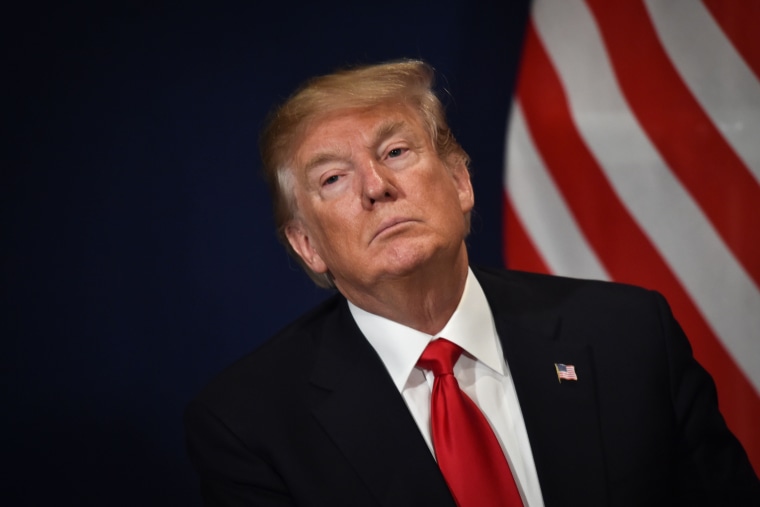When Donald Trump met privately with then-FBI Director James Comey the week after the president's inauguration, he reportedly told Comey, "I need loyalty, I expect loyalty."
About four months later, after having fired Comey in the hopes of undermining an ongoing federal investigation, the president met privately with then-FBI Deputy Director Andrew McCabe. After exchanging pleasantries, Trump had a question for the bureau leader: Whom did he vote for in the 2016 election? (McCabe found the interaction "disturbing.")
And six months after that, according to reports from CNN, ABC News, and the New York Times, the Republican president had a related question for Deputy Attorney General Rod Rosenstein.
Deputy Attorney General Rod Rosenstein visited the White House in December seeking President Donald Trump's help. The top Justice Department official in the Russia investigation wanted Trump's support in fighting off document demands from House Intelligence Chairman Devin Nunes.But the President had other priorities ahead of a key appearance by Rosenstein on the Hill, according to sources familiar with the meeting. Trump wanted to know where the special counsel's Russia investigation was heading. And he wanted to know whether Rosenstein was "on my team."
When the president seemed to obstruct justice by pressuring Comey in January 2017, some White House allies basically came up with the Amateur Excuse: Trump, new to any form of public service, had no idea it was wrong for a president to make loyalty demands to the director of the FBI. He was, according to the argument, new to this, so it's unreasonable to expect him to know that obstruction of justice is wrong.
But Trump's loyalty appeals to Rosenstein were in December -- as in, a point at which the president had already been in office for 11 months and could no longer plead ignorance.
Making matters slightly worse, CNN's report added that Rosenstein, at the time, was preparing to testify before the House Judiciary Committee. The president took it upon himself to "suggest questions to members of Congress" that they could ask the deputy attorney general who's overseeing the Trump-Russia investigation.
In June 2016, Bill Clinton had a chat on a tarmac with then-Attorney General Loretta Lynch, and according to everyone involved, it was a fairly brief social interaction. The political world responded to the meeting with horror: because the Justice Department was examining Hillary Clinton's email server protocols, Americans were told, it was wildly inappropriate for the former president to engage the sitting attorney general in conversation.
After all, according to those who saw the chat as scandalous, Bill Clinton might've used the opportunity to pressure a top Justice Department official about an ongoing investigation. (There's no evidence of such pressure.)
My question for those who took that story seriously is simple: aren't Trump's actions vastly worse? We now know of a sitting president pressing an FBI director, an acting FBI director, and a deputy attorney general for loyalty during ongoing investigations involving Trump and his political operation. This isn't how our system is supposed to function.
Trump is testing the independence of federal law enforcement in ways Americans haven't seen since the Nixon era.
